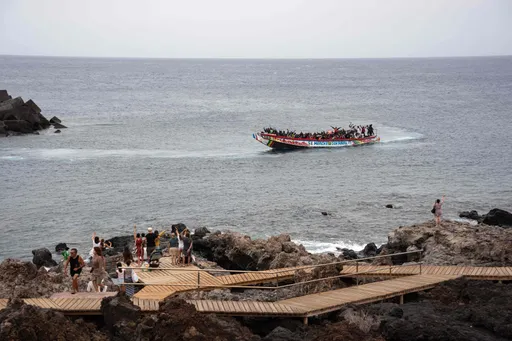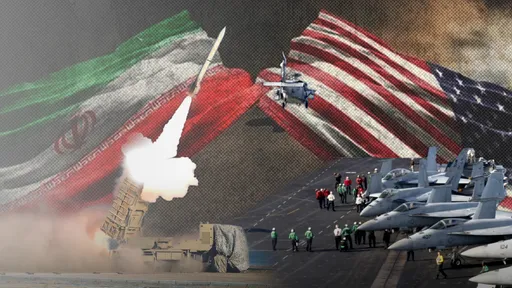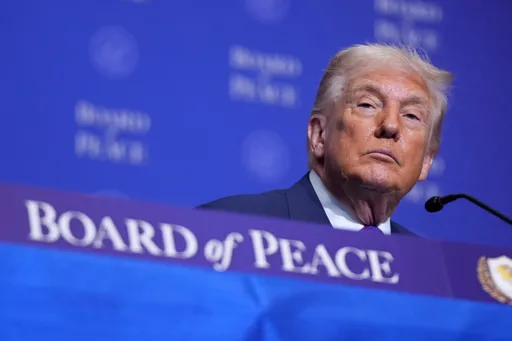A blockade intended to force Qatar to fall into line with a Saudi and Emirati-led regional order has entered its fourth year.
On June 5, 2017, Saudi Arabia and its allies the UAE, Egypt, and Bahrain broke off all diplomatic ties with Doha alleging it supported terrorist groups and was purportedly fermenting discord in Arab countries.
Qatar categorically rejected the accusations and refused to give into a list of demands, which included shuttering the Al Jazeera media network, stopping support for opposition groups in Arab countries, and expelling the Turkish military presence in Qatar, among other stipulations.
A military invasion was only stopped after intervention by then-US Secretary of State Rex Tillerson.
Qatar’s leaders have refused any outside pressure that infringes on their country’s independence and sovereignty, and while there have been sporadic and tentative attempts at securing a reconciliation, nothing has come of them so far.
The intention of the blockade was to choke off Qatar economically and diplomatically, until it had no choice but to become compliant to Saudi Arabia.
To that end, Qatari aircraft were banned from using Bahraini, Saudi, Emirati, and Egyptian airspace. The country’s only land border, with Saudi Arabia, was also sealed shut, stopping most food and commercial imports into the country.
For Qataris, the blockade also took on a bitter personal dimension, as they were banned from entering neighbouring states, and cut off from family members living there.
On the international front, the quartet initially enlisted the support of US President Donald Trump, who gave his backing to the blockade early on.
However, if Riyadh and Abu Dhabi were expecting quick capitulation, they were in for disappointment.
Three years on Qatar has not substantially changed its foreign policy, has diversified its economy in response to the initial shock of the blockade, and has managed to persuade US policy makers to take a more mediatory role in handling the dispute.
The turnaround on the last note is illustrated by recent reports that Trump has personally pressured Saudi and Emirati leaders to end restrictions on Qatari aircraft using their country’s airspace.
Economic diversification
The first few days after the blockade led to a scramble for new suppliers in Qatar as the country sought to urgently replace the trade routes that were cut off.
Immediate help came in the way of Turkish airlifts of aid, and the opening of new trade routes with countries across the world.
The blockade also forced Qatar to turn inwards for solutions. Entrepreneurs sought to set up factories to produce goods within the state and so decrease the reliance on external imports.
Despite its desert climate, a functioning agricultural sector also took off in Qatar, addressing the need for dairy products and crops.
According to estimates by the Qatari Chamber of Commerce, 47,000 new businesses had been established within Qatar since the crisis began.
Qatar is taking up the issue of violation of trade agreements with international bodies, such as the World Trade Organisation.
A failed adventure?
With Qatar’s refusal to submit to the demands of its neighbours, the blockade appears to be yet another foreign policy misstep by Saudi Arabia and its de facto ruler, Crown Prince Mohammed bin Salman (MBS).
Qatar has arguably a more robust economy, as a result of the blockade, with more reliable supply chains.
In addition to the failure over Qatar, the Saudi royal’s reputation lies in tatters after the killing of journalist Jamal Khashoggi, a killing he is widely understood to have ordered, according to Turkish and Western intelligence services, as well as the devastation wrought by Saudi intervention in Yemen.
At various points during his rise, MBS has used intimidation as a means of getting his way with varied results to date.
As the most powerful man in the kingdom, he has imprisoned rival princes, and shaken down the country’s business elite for cash.
In November 2017, the then-Lebanese prime minister, Saad Hariri, was kidnapped and held hostage by the Saudis in order to force his country to take a harder line on Riyadh’s regional rival Iran.
Hariri was later freed after French diplomatic intervention.























